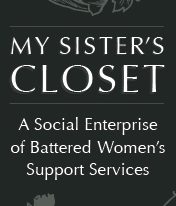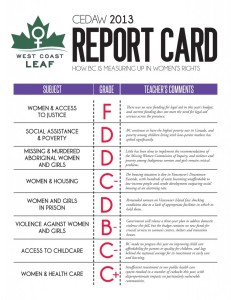PRESS RELEASE
For immediate release
December 19, 2014
BC Coroners Service Report Confirms
There’s a war on women and the battlefield is in their homes
Vancouver, B.C.– The BC Coroners Service has made public a report examining the number of homicides resulting from intimate partner violence (IPV) over the past decade. The statistics cover the period from January 1, 2004, through December 15, 2014. They show that throughout that time period, the average number of persons who died each year from intimate partner violence is 14. For the current year to date, the number is 14 and about three-quarters of the victims in IPV instances are women.
Terms like IPV, or domestic violence, or family violence are gender neutral and render invisible the grim reality that there is a war on women. A 77-year-old woman shot dead in her two-storey Saanich home along with the family dog. A 67-year-old woman brutally assaulted in a Surrey home who died later in hospital. An East Vancouver mom killed in the basement with her son in the same house. For every woman who is murdered there are thousands more all across the province that are living in fear.
Violence against women is preventable, predictable and research confirms that the lethality for women in abusive relationships increases when women are leaving or have left abusive male partners.
Since 2009, several of the women murdered in BC have had heavy system involvement including police, court services, and child protection services. Also since 2009, the province of BC has been increasing resources and emphasis on police and court services even though the vast majority of women, as in 75%, do not report to the police and reporting goes down to 10% with instances of sexual violence.
“At BWSS, we have been unable to track a single instance where a woman has been murdered who has been receiving services from a women’s organization, and unfortunately the province of BC has not increased funding or resources for women’s organizations in decades.”, states Angela Marie MacDougall, Executive Director of Battered Women’s Support Services (BWSS).
Women’s and women-serving organizations play a critical role in women’s safety:
- Provide emotional support to women dealing with the effects of trauma
- Provide information about the dynamics of abuse and it’s effects
- Provide accompaniment to appointments
- Help women make safety plans
- Assessment of risk, threat and lethality
- Understand women’s process of staying, leaving and returning
- Help to co-ordinate systemic response between police, court services, child protection
- Advocate with police, court services, child protection when systemic response is substandard
- Help women find housing – transitional or permanent
- Help women deal with economic challenges
- Help women to support their children with the effects of witnessing their mother’s abuse
Women are coming forward more than ever and seeking support. In the past eight years, requests for services at BWSS has more than doubled from 6,000 in 2006 to over 13,000 in 2014. There is a war on women and the battlefield is in their homes where it is supposed to be safe.
BC, Canada, has a responsibility to ensure that there are relevant and enough support services and programs in place for girls and women experiencing violence and a responsibility to ensure the vital support services and programs existing are adequately funded and secure.
Women’s organizations make a real difference in women’s lives and in our larger community. Let’s make sure these organizations have the support they need to continue their vital work.
For more information or to schedule an interview:
Angela Marie MacDougall
Executive Director, Battered Women’s Support Services
Tel. (604) 808 0507
E-mail: director@bwss.org
If you could do something to end violence against girls and women, wouldn’t you?









